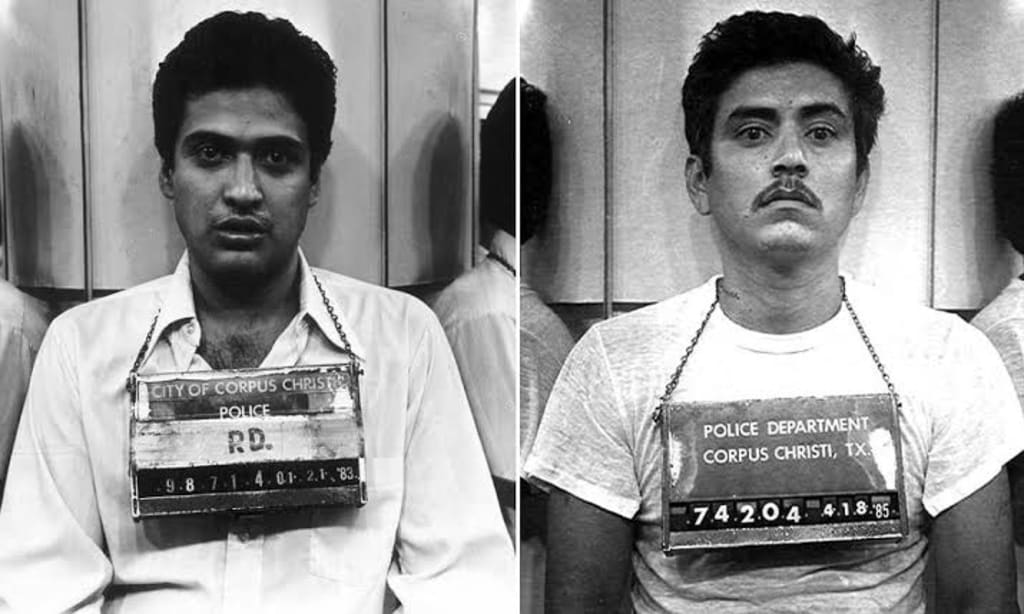DeLuna: Justice Denied
Carlos DeLuna's life and execution epitomize the flaws in the criminal justice system. Accused of a 1983 murder, DeLuna's inadequate defense and unreliable witness testimonies led to his conviction and death sentence.

Carlos DeLuna was a man whose life and death became a symbol of flaws within the criminal justice system. Born on July 15, 1962, in Corpus Christi, Texas, DeLuna's story highlights issues of mistaken identity, inadequate legal representation, and the controversial use of the death penalty in the United States.
DeLuna's life took a tragic turn when he was accused of the brutal murder of Wanda Lopez, a young convenience store clerk, in 1983. The crime occurred in Corpus Christi, a city plagued by crime at the time. DeLuna was arrested near the crime scene shortly after the murder. Despite maintaining his innocence, DeLuna was quickly tried, convicted, and sentenced to death in a trial that lasted only a few days.
One of the most significant aspects of DeLuna's case was the lack of proper legal representation. His court-appointed attorney, who had limited experience in handling capital cases, failed to adequately investigate the case or present a strong defense. As a result, DeLuna was convicted largely based on circumstantial evidence and witness testimonies, some of which later proved to be unreliable.
The case against DeLuna relied heavily on eyewitness testimony that identified him as the perpetrator. However, subsequent investigations revealed that another man, Carlos Hernandez, had a criminal history similar to DeLuna's and shared a strikingly similar appearance. Hernandez, a violent criminal, was known to have used a knife in his crimes. This information raised doubts about whether DeLuna was indeed the perpetrator, as Hernandez seemed to be a more likely suspect.
Years after DeLuna's conviction, investigative journalists and legal experts began to question the validity of the case. In-depth investigations revealed that crucial evidence had been mishandled or overlooked during the original trial. Moreover, the discovery of Hernandez as a potential alternate suspect cast serious doubts on DeLuna's guilt. This revelation highlighted the potential for a tragic case of mistaken identity, leading to an innocent man's conviction and eventual execution.
DeLuna's case also brought attention to the broader issue of flaws in the criminal justice system, particularly the use of the death penalty. Advocates and legal scholars pointed out that his case highlighted the dangers of relying solely on eyewitness testimony and the dire consequences of inadequate legal representation. The possibility of an innocent person being executed raised ethical concerns about the use of the death penalty as a form of punishment.
In 1989, DeLuna was executed by lethal injection, maintaining his innocence until his last breath. His case continued to garner attention after his death, prompting calls for reform in the criminal justice system. The doubts surrounding his guilt highlighted the need for improved legal representation for defendants facing the death penalty and increased scrutiny of evidence in capital cases.
The case of Carlos DeLuna also played a significant role in sparking discussions about the broader issues of racial and economic disparities within the criminal justice system. DeLuna, a Hispanic man from a disadvantaged background, faced numerous challenges in his legal proceedings, from biased jury selection to inadequate representation. His story added to the growing awareness of systemic inequalities that disproportionately affect marginalized communities.
In conclusion, Carlos DeLuna's life and death serve as a stark reminder of the flaws and shortcomings within the criminal justice system. His case highlighted the dangers of relying on circumstantial evidence and eyewitness testimonies, especially when a person's life is at stake. Furthermore, his story underscored the urgent need for improvements in legal representation and a reevaluation of the use of the death penalty. As discussions about criminal justice reform continue, Carlos DeLuna's tragic tale remains a poignant example of the consequences of a flawed system on individuals and society as a whole.





Comments
There are no comments for this story
Be the first to respond and start the conversation.